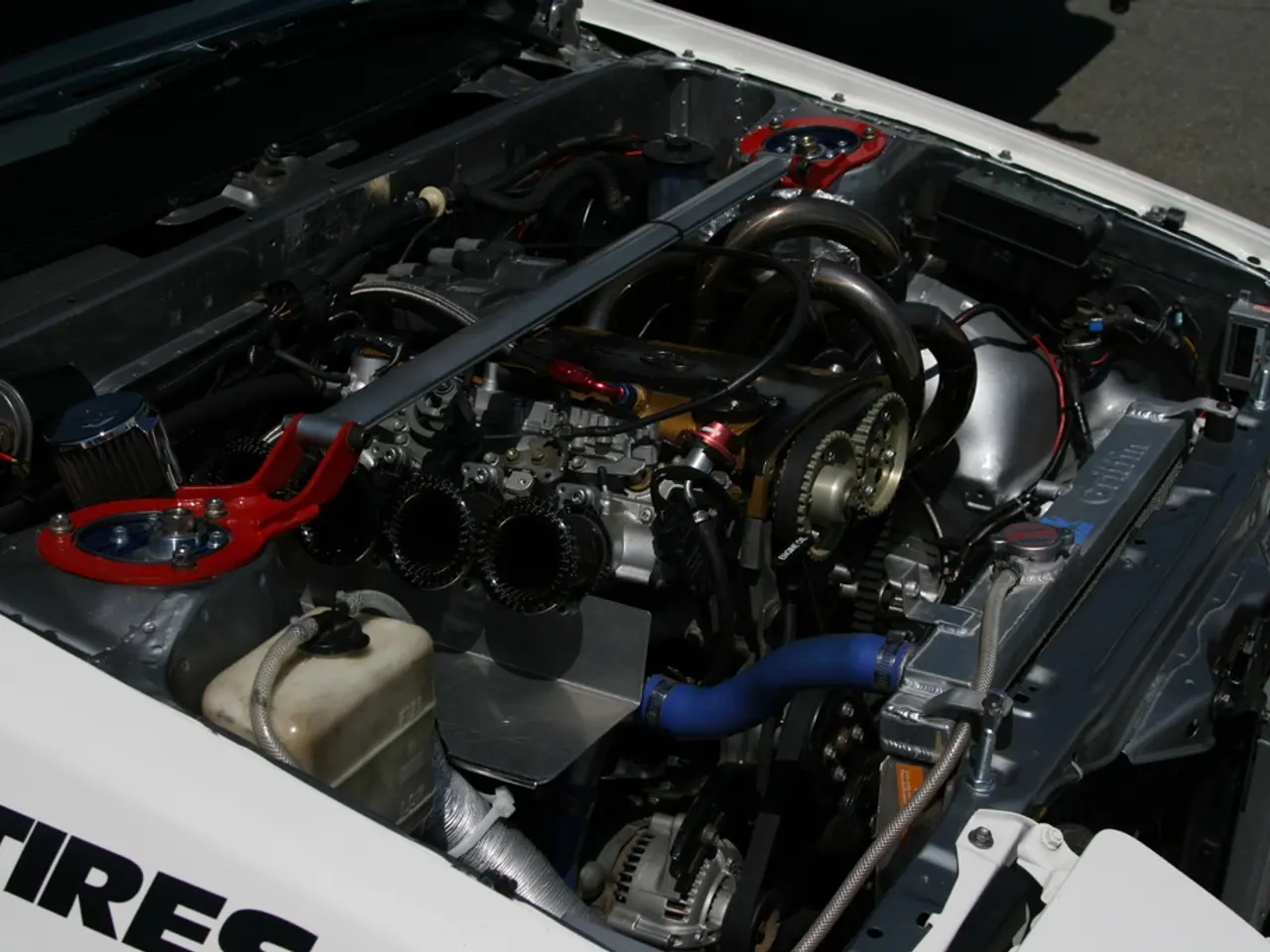Large-scale battery storage initiatives spearheaded by VERBUND and Fluence commence in Germany
In a significant move towards a secure and affordable energy system, VERBUND and Fluence Energy GmbH have announced the launch of two large-scale battery storage projects in Germany. These projects, located in Weißenthurm-Kettig, Rhineland-Palatinate, and Elsterberg-Coschütz, Saxony, aim to address critical electricity grid requirements while adhering to stringent noise protection regulations.
The Weißenthurm-Kettig Project
The first project, with a capacity of 50 MW and a storage capacity of 100 MWh, is set to be a significant addition to the German energy landscape. This battery storage facility will play a crucial role in maintaining grid stability and supporting the transition towards renewable energy sources.
The Elsterberg-Coschütz Project
The second project, in Elsterberg-Coschütz, Saxony, boasts a capacity of 42.9 MW and a storage capacity of 86.5 MWh. Like its counterpart, this project will contribute to the reliability and resilience of the German power grid.
Compliance with Regulatory Requirements
Both projects will employ a modular system approach, designed to improve performance and scalability. They will also adhere to the regulatory framework governing battery storage projects in Germany. This includes specific provisions addressing noise protection and cybersecurity, though detailed explicit rules focused solely on these areas appear limited in recent available updates.
For noise protection, battery storage projects must comply with local environmental and construction noise regulations. These typically require assessment of noise emissions during construction and operation phases to ensure they do not exceed permitted limits, particularly in residential or sensitive areas. Battery energy storage systems (BESS), especially large-scale installations, are subject to noise mitigation measures such as soundproofing, acoustic enclosures, or siting away from noise-sensitive locations.
Regarding cybersecurity, German battery storage projects must adhere to the requirements set by the German IT Security Act and the European Network and Information Security Directive. Operators are obliged to implement state-of-the-art IT security measures to protect against cyber threats that could impact grid stability or data integrity.
Collaboration and Expertise
Fluence was selected for its extensive experience in large-scale battery storage and knowledge of the German regulatory landscape. The collaboration between VERBUND and Fluence is another step towards a secure and affordable energy system in Germany. Fluence demonstrated advanced noise protection features and robust cybersecurity measures that align with stringent system security standards.
VERBUND, a significant player in the German battery storage market, will focus on the operation of the facilities and the marketing of battery storage in the collaboration with Fluence. The projects with Fluence bring VERBUND closer to its goal of installing around 1 GW of storage capacity by 2030.
These projects mark a significant milestone in the development of renewable energy infrastructure in Germany. They underscore the importance of reliable partners like VERBUND and Fluence for the successful development and implementation of energy storage projects. As the demand for renewable energy continues to grow, collaborations like this one are crucial for ensuring a secure and affordable energy system for all.
[1] Fluence Corporation Limited. (2021). Fluence Accelerates Growth in Germany with New Projects in Partnership with VERBUND. Retrieved from https://www.fluenceenergy.com/news/fluence-accelerates-growth-in-germany-with-new-projects-in-partnership-with-verbund/
[2] Bundesverband Energiewirtschaft, Elektrotechnik und Informationstechnik e.V. (2020). Baukostenzuschuss für Batterie-Speicheranlagen: Urteil des Bundesverwaltungsgerichts. Retrieved from https://www.bdew.org/presse/pressemitteilungen/baukostenzuschuss-fuer-batterie-speicheranlagen-urteil-des-bundesverwaltungsgerichts
[3] Bundesnetzagentur. (2020). Baukostenzuschuss für Batterie-Speicheranlagen. Retrieved from https://www.bundesnetzagentur.de/EN/Topics/Grid/GridConnection/grid-connection-costs/Baukostenzuschuss/Baukostenzuschuss_node.html
[4] Bundesministerium für Wirtschaft und Energie. (2020). Baukostenzuschuss für Batterie-Speicheranlagen. Retrieved from https://www.bmwi.de/Redaktion/DE/Themen/Energie/Strom/Baukostenzuschuss-fuer-Batterie-Speicheranlagen.html
- The Weißenthurm-Kettig and Elsterberg-Coschütz projects, initiated by VERBUND and Fluence Energy GmbH, aim to mitigate electric grid requirements while adhering to noise protection regulations.
- The data-and-cloud-computing expertise of Fluence Energy GmbH was pivotal in their selection for these large-scale battery storage projects in Germany.
- In alignment with the German regulatory framework, both projects will implement robust cybersecurity measures that protect against potential cyber threats affecting grid stability and data integrity.
- By focusing on the operation of these facilities and marketing battery storage, VERBUND intends to reach its goal of installing around 1 GW of storage capacity by 2030.
- The collaboration between VERBUND and Fluence Energy GmbH highlights the importance of incorporating renewable energy, data technologies, and environmental-science principles in the business and finance sectors for a sustainable, affordable energy system.




